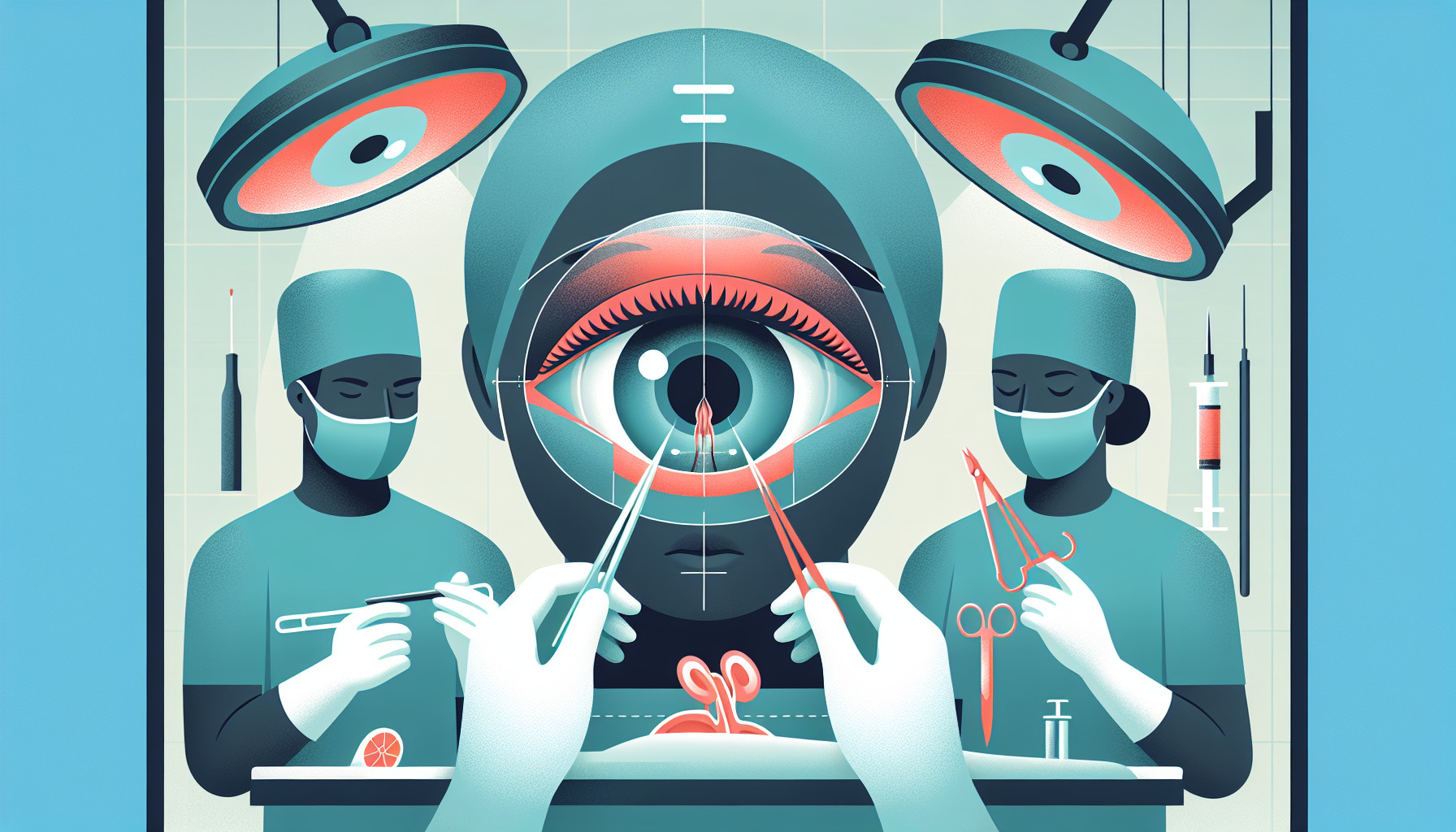Our Summary
This study looked at how long it took for two eye surgeons to get really good at a specific type of eye surgery, called strabismus surgery. The researchers looked at the first 70 surgeries each doctor did, and split them into groups of 10 based on when the surgeries were done. They then looked at factors like how old the patient was, how severe their condition was before surgery, how long the surgery took, and whether the surgery was successful or not.
They found that one surgeon got quicker at the surgery after doing about 40 cases, while the other got quicker after about 50 cases. However, they didn’t find a specific point at which the surgery became more successful. The success rate was pretty much the same for both doctors, no matter how many surgeries they had done. However, the second surgeon did take significantly longer to finish the surgery on average.
So, the study suggests that eye surgeons might need to do about 50 of these surgeries before they become really efficient at it. This information could be useful for training new surgeons.
FAQs
- How many strabismus surgeries do surgeons typically need to perform before they become efficient at it?
- Did the study find a specific point at which strabismus surgery became more successful?
- What factors did the study consider in evaluating the surgeons’ skills in performing strabismus surgery?
Doctor’s Tip
One helpful tip a doctor might tell a patient about strabismus surgery is that the surgeon’s experience and skill level can play a role in the outcome of the surgery. It may be beneficial for patients to seek out a surgeon who has performed a significant number of strabismus surgeries to increase the likelihood of a successful outcome. Additionally, patients should follow their doctor’s pre and post-operative instructions closely to ensure the best possible results.
Suitable For
Patients who are typically recommended strabismus surgery include those with:
- Misaligned eyes (strabismus) that cannot be corrected with non-surgical methods such as glasses or eye exercises
- Persistent double vision
- Amblyopia (lazy eye)
- Strabismus that is causing significant social, emotional, or functional issues
- Strabismus that is causing eye strain or discomfort
- Strabismus that is affecting the development of a child’s vision
It is important for patients to consult with an ophthalmologist or eye surgeon to determine if strabismus surgery is the right treatment option for their specific condition.
Timeline
Before strabismus surgery, a patient typically undergoes a comprehensive eye exam to determine the extent of their eye misalignment and the best course of treatment. They may also need to undergo tests such as eye muscle imaging or vision testing.
After strabismus surgery, the patient may experience some discomfort, redness, and swelling in the eye area. They may need to wear an eye patch for a few days and use eye drops to prevent infection. Follow-up appointments with the surgeon are essential to monitor the healing process and ensure the success of the surgery. It may take several weeks to months for the eyes to align properly and for the patient to see improvements in their vision and eye alignment.
What to Ask Your Doctor
- How experienced are you in performing strabismus surgery?
- How many strabismus surgeries have you performed?
- What is your success rate with strabismus surgery?
- What are the potential risks and complications of strabismus surgery?
- What is the recovery process like after strabismus surgery?
- How long will the surgery take?
- Will I need to wear an eye patch or have any restrictions after surgery?
- What are the alternative treatment options for strabismus?
- How soon after surgery will I see improvement in my eye alignment?
- Are there any factors that may affect the success of the surgery in my case?
Reference
Authors: Kim Y, Kim YG, Kim HJ, Shin JH, Han SB, Lee SJ, Kim M. Journal: Indian J Ophthalmol. 2015 Nov;63(11):821-4. doi: 10.4103/0301-4738.171962. PMID: 26669332
